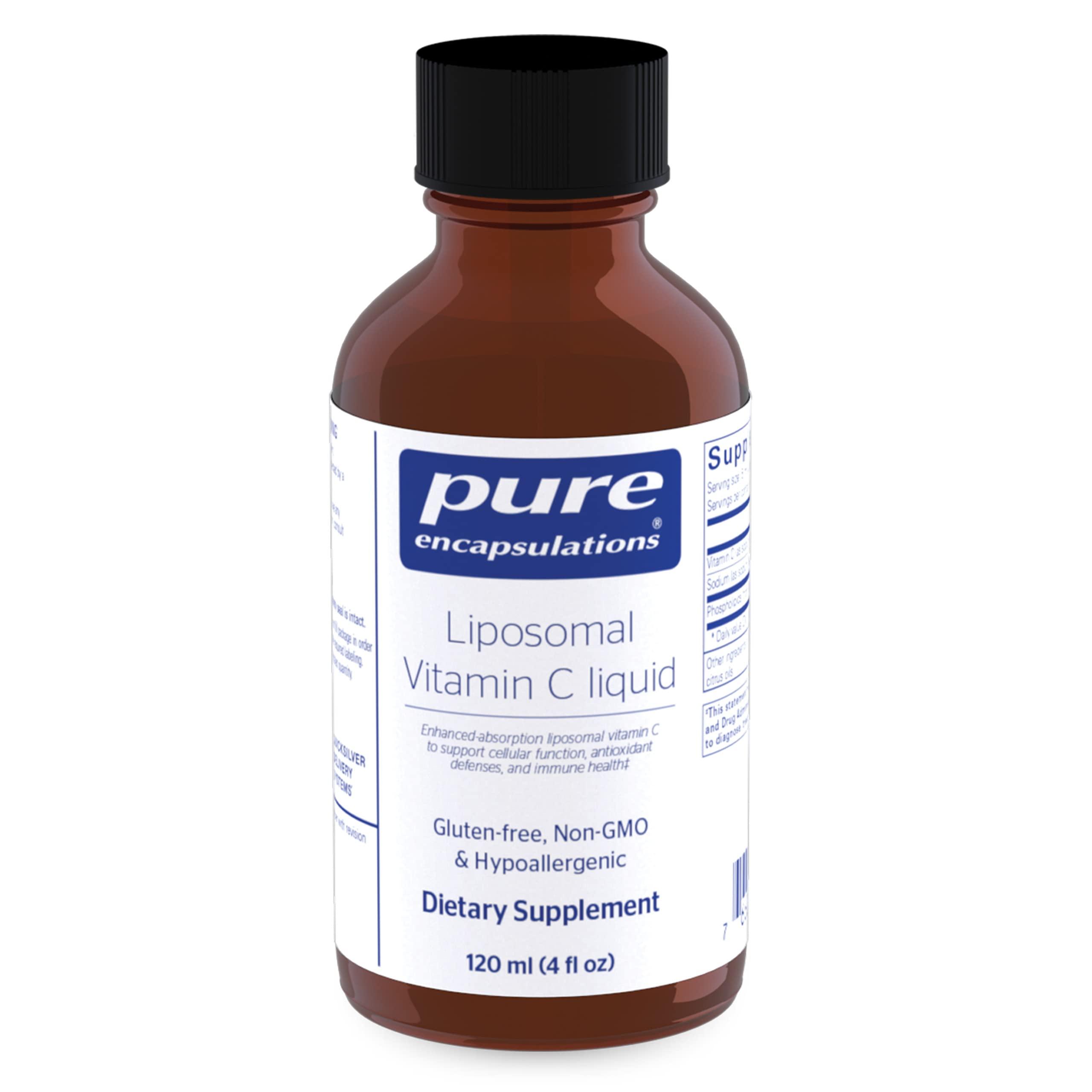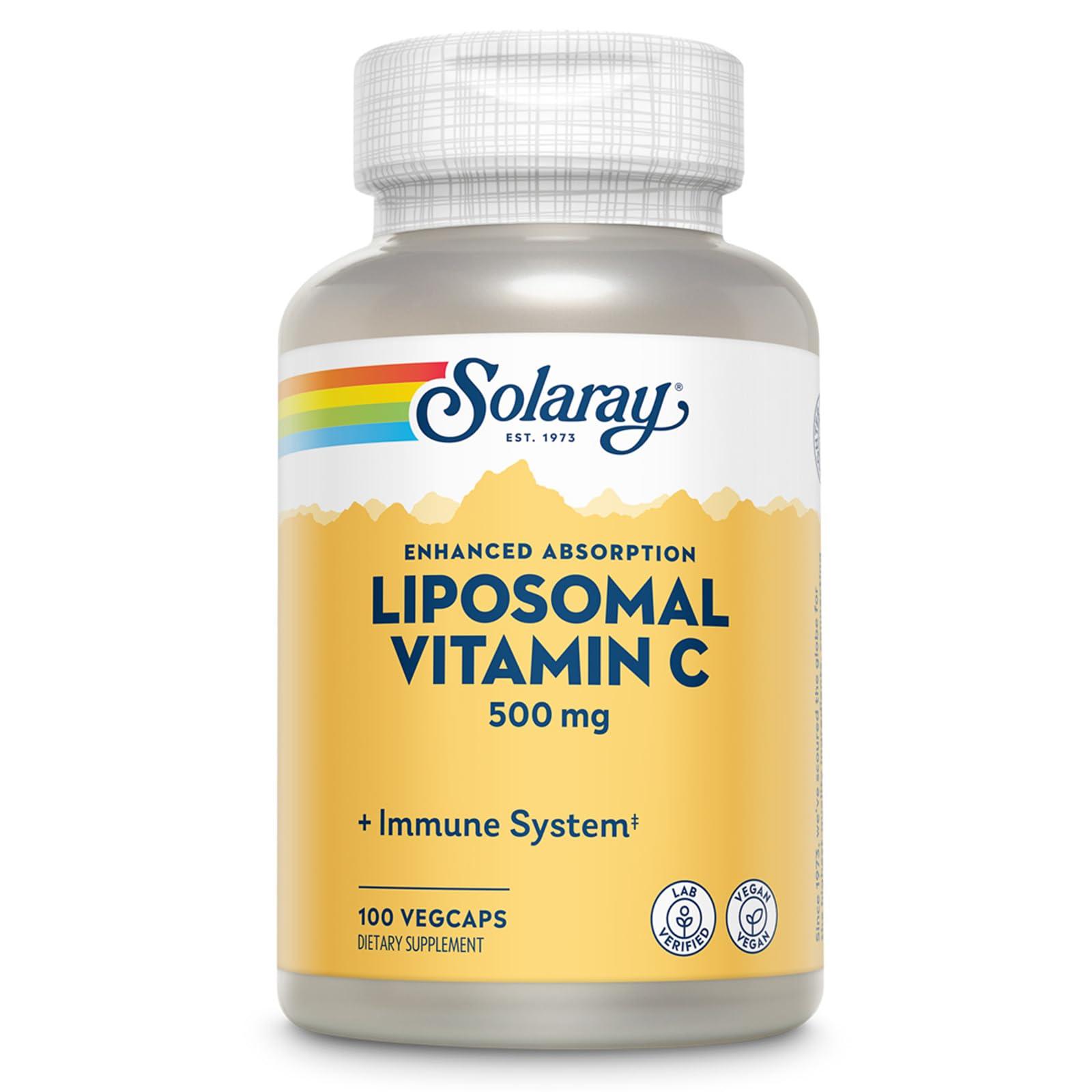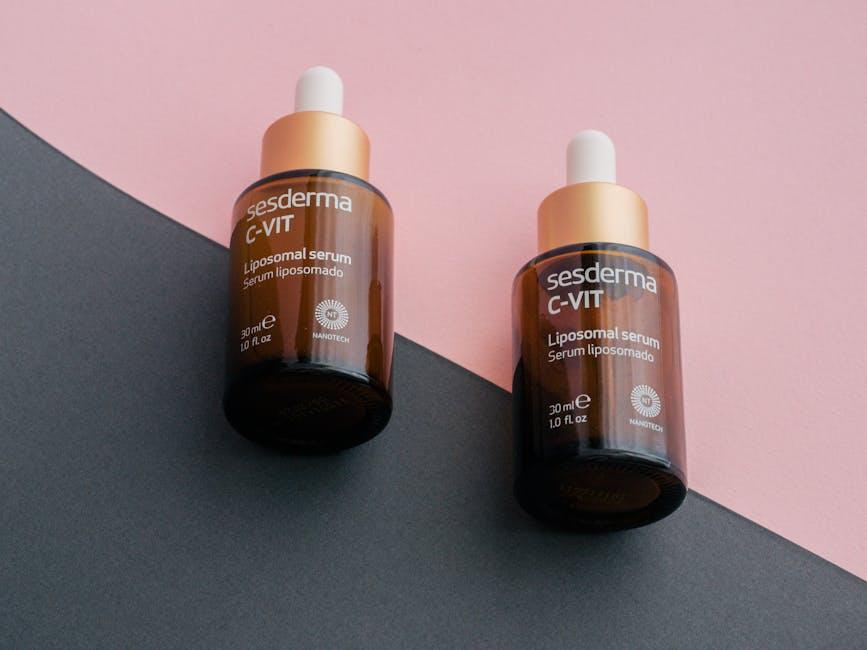In the vast tapestry of nutritional supplements, vitamin C stands out as a celebrated champion of health, known for its antioxidant properties and its pivotal role in supporting the immune system. Though, not all vitamin C is created equal. As science continues to unravel the complexities of nutrient absorption, two forms have emerged at the forefront: liposomal vitamin C and customary ascorbic acid. While both promise an array of health benefits, their mechanisms of absorption and efficacy can differ considerably. This article invites you on a journey through the intricate world of vitamin C, exploring the distinctions between liposomal formulations and their ascorbic acid counterpart, and how each may bolster your immune defenses. Prepare to delve into the latest research and insights to help you make an informed choice for your wellness regimen.
Understanding the Distinction: Liposomal Vitamin C versus Ascorbic Acid
When diving into the realm of Vitamin C supplements, it’s essential to recognize the contrasting forms available. Liposomal Vitamin C encapsulates the ascorbic acid in tiny lipid spheres, enhancing its absorption in the body. This method of delivery not only protects the vitamin from degradation while traversing the digestive system but also facilitates improved cellular uptake. The result is a more potent effect with possibly lower doses, making it a preferred choice for many seeking optimal health benefits. Here’s why liposomal formulations stand out:
- Enhanced bioavailability: Liposomes mimic cell membranes, allowing for better integration and absorption.
- Reduced Gastrointestinal Distress: Frequently enough causes fewer digestive issues compared to standard ascorbic acid.
- Sustained Release: Provides a longer-lasting effect in the bloodstream.
In contrast, Ascorbic Acid remains the more traditional and widely-used form of Vitamin C. While it holds its own in terms of benefits—such as antioxidant support and immune bolstering—it may be less effective in achieving high cellular concentrations without larger doses.Furthermore, some individuals may experience digestive discomfort with higher amounts of ascorbic acid. For a clearer comparison, consider the following table:
| Feature | Liposomal Vitamin C | Ascorbic Acid |
|---|---|---|
| Bioavailability | High | Moderate |
| digestive Tolerance | Better | Frequently enough Limited |
| Cost | Higher | Lower |
Each form serves its purpose, but understanding these distinctions empowers consumers to make informed choices that align with their health objectives.

Unlocking Absorption: How Delivery Mechanisms Influence Bioavailability
The effectiveness of vitamin C as a vital nutrient hinges on its bioavailability, which can be significantly influenced by the delivery mechanism employed. Liposomal vitamin C encapsulates the ascorbic acid within lipid layers, providing a protective barrier that enhances absorption at the cellular level. This method facilitates a targeted delivery, allowing higher concentrations of the vitamin to penetrate tissues and cells while reducing gastrointestinal discomfort associated with traditional ascorbic acid. Key advantages include:
- improved absorption rates due to enhanced transport across cell membranes
- Sustained release that maintains elevated levels of vitamin C in the bloodstream over time
- Reduces oxidative stress, allowing for better defense against free radicals
On the other hand, ascorbic acid, while widely used and recognized, frequently enough presents limitations related to its absorption. High doses can lead to gastrointestinal side effects and incomplete absorption, leaving the body with suboptimal levels of the nutrient. The efficiency of ascorbic acid can be influenced by factors such as the presence of food and its interactions with other compounds. Below is a comparative overview of the two forms:
| Feature | Liposomal Vitamin C | Ascorbic Acid |
|---|---|---|
| Absorption Efficiency | High | Moderate |
| Gastrointestinal Tolerance | Excellent | Poor at high doses |
| release Mechanism | Sustained | Immediate |
| Oxidative Stress Reduction | Enhanced | Standard |

Immune System Support: Evaluating the Benefits of Each Form
The human immune system requires specific nutrients to function optimally, and vitamin C is one of the most crucial players in this support. Ascorbic acid, the conventional form of vitamin C, is readily available and has been extensively researched for its immune-boosting properties. This simple molecule promotes the production of white blood cells and aids in their function,enhancing the body’s ability to ward off infections. Though, ascorbic acid might potentially be limited in its absorption, with some studies indicating that only a fraction of consumed vitamin C reaches the bloodstream effectively.
In contrast, liposomal vitamin C offers a novel approach to enhancing absorption. By encapsulating vitamin C in lipid spheres, this form significantly improves bioavailability, allowing for more effective delivery to immune cells.The protective liposomal structure not only shields the vitamin from degradation but also facilitates its entry into cells, potentially amplifying its immune-supportive effects. Users often report fewer gastrointestinal discomforts with liposomal forms compared to high doses of ascorbic acid, making it a promising alternative for those seeking to boost their immune defenses.
| Vitamin C Form | Absorption | Immune Benefits |
|---|---|---|
| Ascorbic Acid | moderate | Increases white blood cell production |
| Liposomal Vitamin C | High | Enhanced delivery to immune cells |

Choosing the Right supplement: tailoring Vitamin C for Individual Needs
When selecting the ideal vitamin C supplement, one must consider individual health goals and lifestyle factors. Such as, those looking to enhance their immune system may benefit from a liposomal formulation, as it offers superior absorption due to its unique delivery system. Conversely, individuals seeking a straightforward and cost-effective option might find that ascorbic acid meets their needs effectively.
- Liposomal Vitamin C: Higher bioavailability,better absorption rate,ideal for sensitive stomachs.
- Ascorbic Acid: Affordable, widely available, effective for general supplementation.
Its also essential to consider the dosage and timing that aligns with personal health routines. For those with a high antioxidant requirement, liposomal vitamin C can provide a more sustained release, assisting throughout the day. Those who prefer a fast boost may find ascorbic acid more convenient for on-the-go consumption. Ultimately, conducting a personal health assessment can guide the decision-making process, ensuring that the chosen supplement aligns harmoniously with overall wellness objectives.
Insights and Conclusions
In the grand landscape of vitamins, Vitamin C stands out as a formidable ally in our pursuit of health and wellness. As we’ve journeyed through the contrasting realms of liposomal Vitamin C and traditional ascorbic acid, it’s evident that absorption and bioavailability play a critical role in harnessing the full spectrum of immune benefits this nutrient has to offer.
choosing between these two forms isn’t merely a matter of preference; it’s a reflection of individual needs and goals. Whether you lean towards the innovative liposomal approach, designed for maximum absorption, or the time-honored efficacy of ascorbic acid, both paths offer valuable contributions to enhancing our immune defenses.
As you navigate your options, consider your lifestyle, your body’s unique requirements, and the advice of healthcare professionals to make an informed decision.Remember, the most effective Vitamin C is the one that works best for you. Here’s to vibrant health and the essential role that Vitamin C continues to play in enhancing our immunity—one molecule at a time.






